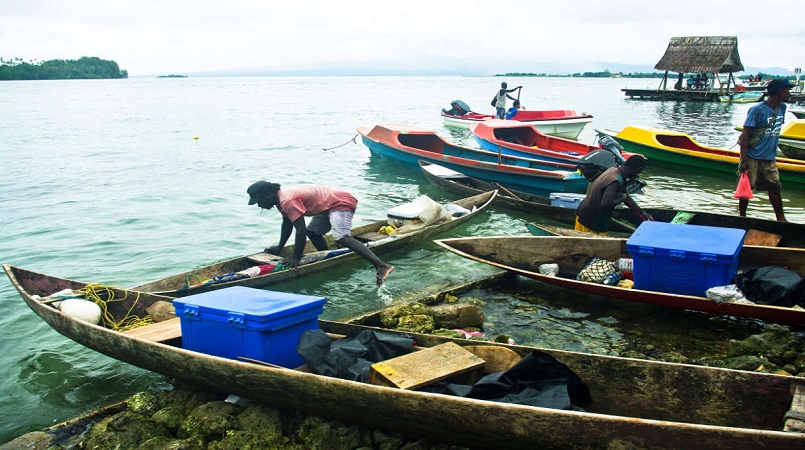
The Pacific Community (SPC) and the United Nations Pacific Financial Inclusion Programme (PFIP) have formed a partnership to conduct research into a new micro insurance solution for the coastal fisheries sector.
Many Pacific Islanders depend on coastal fisheries for both food and income but the sector is vulnerable to natural disasters, including cyclones, which can expose them to severe risks.
Having appropriate insurance is one way to mitigate the risks, and will help to build resilience and the ability to cope with financial shocks arising from natural disasters and other extreme events.
Through the partnership between SPC and PFIP, research will be conducted on the risks, especially those related to natural disasters, faced by small-scale fishers and fishing communities dependent on coastal fisheries resources for their subsistence and livelihoods. The type of assets owned by these communities will be studied, along with how exposure to various perils and natural disasters can negatively impact both the value of these assets, and community living standards.
Once this research has been completed, PFIP will work with interested financial service providers to develop suitable micro insurance solutions covering the lives and assets of the coastal fishing communities in Fiji and thereafter in other Pacific countries.
“In the Pacific we know all too well the devastation caused by natural disasters,” says Moses Amos, SPC’s Fisheries, Aquaculture and Marine Ecosystems (FAME) Director. “A micro insurance program can be an important resilience tool for helping communities prepare for such disasters, and for ensuring that they are able to rebuild.”
PFIP Programme Manager Bram Peters said “a resilient Pacific is built on a foundation of strong partnerships. Working together, SPC and PFIP will be helping to protect both the costal fisheries industry and the communities which it supports.”
This project is being carried out by PFIP in partnership with SPC, with financial support from the Regional Disaster Resilience in the Pacific Small Island Developing States (RESPAC), a programme funded by the Russian Federation and implemented by the United Nations Development Programme.
